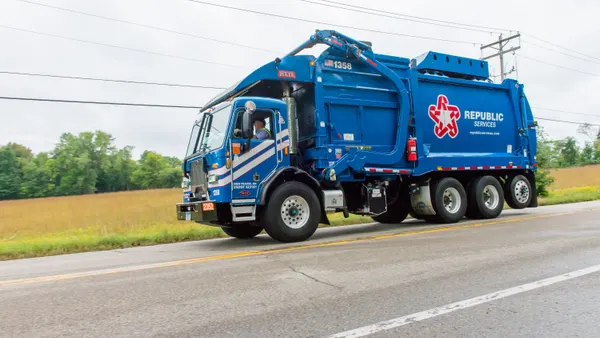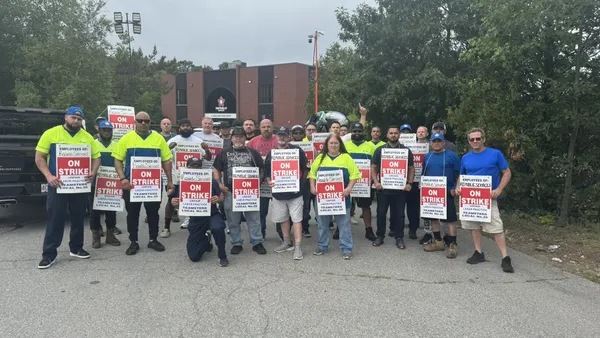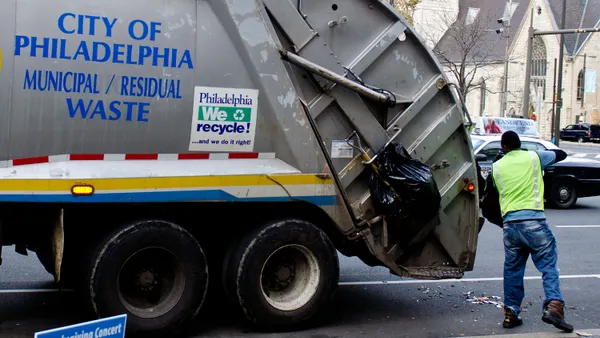Dive Brief:
- A new bill introduced by Council Member David Greenfield, Int. 1417, would require New York's Department of Sanitation (DSNY) to install GPS units on all of its vehicles, as reported by the New York Daily News.
- DSNY would be required to operate the units at all times and make real-time data available to the public via the agency's website. DSNY would also be required to maintain all records created by the units in an electronic database open to public inspection.
- Greenfield cited traffic issues created by collection trucks as the inspiration behind this bill and said the data could potentially be used to create apps alerting drivers of areas to avoid or used in existing apps such as Waze.
Dive Insight:
Discussion around traffic created by collection vehicles in New York has been centered around commercial waste trucks lately, but the average city driver has likely been stuck behind one of the more than 2,200 DSNY trucks at least once before. This was such an issue in Borough Park — part of Greenfield's Brooklyn district — that he successfully lobbied to have DSNY switch collection to the overnight shift last year. Greenfield's communications director, Stephen Snowder, told Waste Dive that a similar approach could not be used in every neighborhood and this bill is meant to help alleviate traffic issues citywide.
GPS units are currently used on city trucks during snow events to provide the public updates about when their streets have been plowed, and Greenfield believes it wouldn't be hard to expand this existing program. DSNY's public affairs office declined to comment directly on the proposed legislation though confirmed that any vehicle used for snow does have a GPS unit. Other vehicles, such as the hundreds of mechanical brooms, light-duty trucks or other special equipment do not have GPS units. As written, the bill doesn't specify whether it would apply to just trucks or all vehicles.
Such details will likely be discussed if and when the bill comes up at a future sanitation committee hearing. Potential costs of the data collection program remain unclear, though Snowder said he believed they would be low enough to be covered by DSNY's existing budget.
GPS units are becoming more common features in collection vehicles and play a key role in making fleet operations more efficient. Dispatchers can reroute trucks more easily and commercial haulers can provide customers more updated information about their estimated time of arrival. Though so far no notable examples exist of municipalities providing this information to the general public. It will be up to council members to decide whether New York will be the first, or whether this would make a difference amid the city's larger traffic problem.










